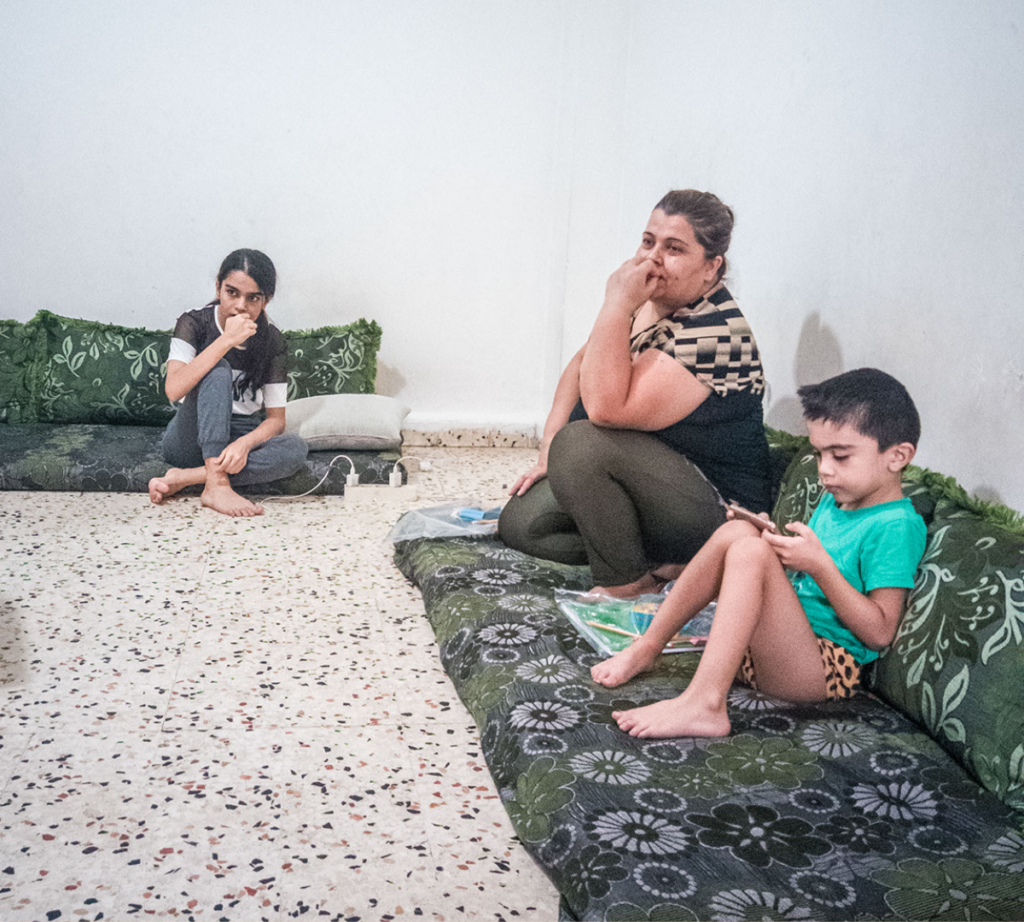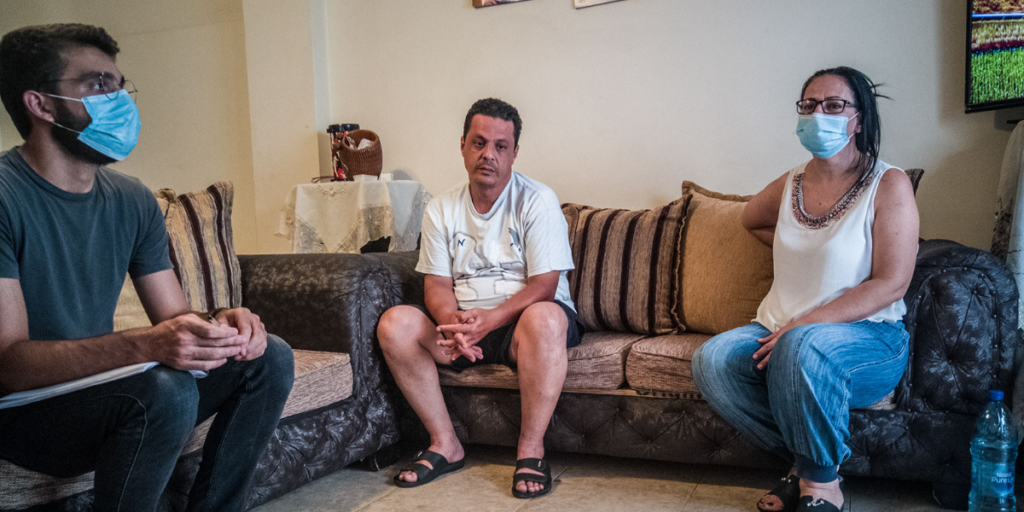Two women’s stories of hope in Paraguay –
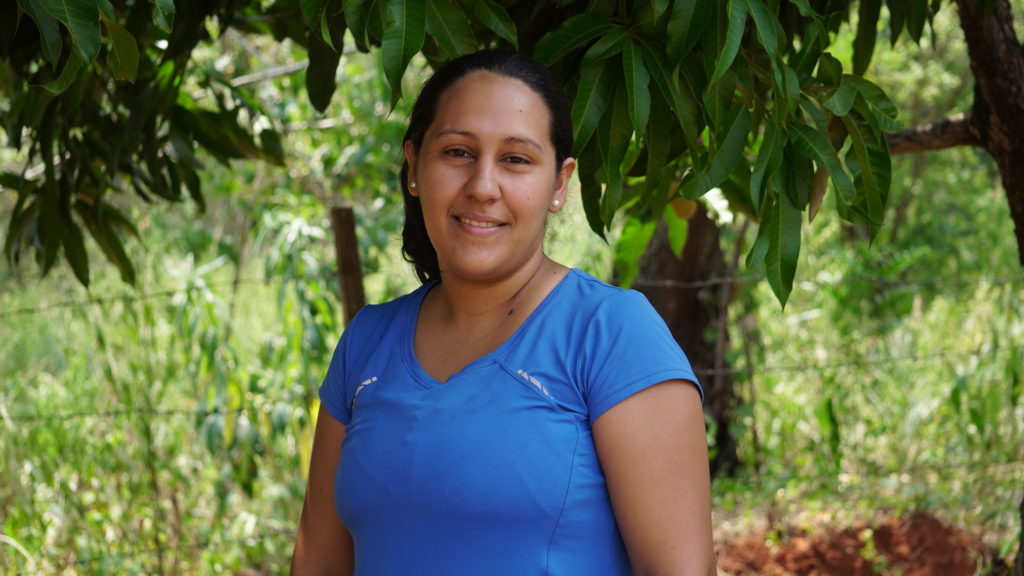
Through Diaconia, Global Aid Network (GAiN)’s partner in Paraguay, women are being equipped to overcome poverty and make a way for themselves in the world. With the help of microloans, small businesses are strengthened and given the chance to grow, while the formation of trust groups cultivates a sense of support and community amongst other women entrepreneurs.
During our team’s most recent visit to the field, we witnessed how Diaconia experienced challenges during the pandemic, yet found new methods of maintaining solid connection with clients. One way was through increasing the use of mobile technology, which yielded positive results. Gloria, who leads the chaplaincy program, said she was able to have more genuine conversations through WhatsApp because it provided a more personal and private channel to talk through struggles with women in trust groups. Since Paraguayan culture is shy and low profile, WhatsApp served as a natural and comfortable way for these women to share openly and have honest conversations about faith and life. Now that they are back to in-person meetings, chaplains reported that there is a new level of closeness with clients that they haven’t felt before.
During the pandemic, the ministry used video instructions to teach women and encouraged them to send pictures of their end product to qualify for a gift. Although many people tuned in for virtual training, the ministry recognizes that in-person training had higher engagement and are planning on returning to this system as soon as possible. Diaconia also plans to launch a new program that delivers vocational training to prisons, in partnership with Trans World Radio. Women who are incarcerated would learn basic crafting skills and, through another local charity, would sell their work and be able to receive a small income through their products. Through this initiative, the ministry hopes to further extend the opportunity for economic empowerment to those living on the margins of society.
While in Paraguay, our team encountered a young woman named Gilda who had experienced the fruitful benefits of partnering with Diaconia. When Gilda was only 18 years old, she worked with her mom and another woman selling food. Once she heard about the microloans that were available through Diaconía, she knew this could help bridge the gap between her and her mom’s current work life and their dream of having an independent business.
Both Gilda and her mother joined one of the very first Diaconía trust groups, which provided a foundation of support and encouragement for their business journey. Ten years later, their business has expanded and they now sell clothing as well. With her last loan, Gilda purchased a vehicle that allows her to travel and buy clothing in bulk to resell in her neighborhood. Her trust group has also grown, and now her mother, husband, and three of her cousins are all receiving loans from Diaconía for their small businesses.
“With each loan, I invest in my business. And when our loan cycle is over, I use the savings I get back to invest in my house, making it a dignified home for my family,” she said.
Gilda dreams of building a small clothing shop and being able to send her children to college so that they can become professionals and not have to struggle every day to provide for their future families. She is thankful for the help she has received through Diaconía and the economic empowerment that all of the women in her family and community can now experience thanks to the ministry’s ongoing support.
“The culture naturally tells women that they cannot do certain things, they are supposed to have more hardships, they are not supposed to have dreams and they have no hope, and they are useless, but this is not true at all. These programs help women gain confidence, and see their value in Christ … they can celebrate who they are.” -Citialli, local Paraguayan woman
We also met a woman named Ilda and her husband Carlos, who came from a humble community in central Paraguay. In search of a better future for themselves and their family, Ilda and Carlos, along with their two kids, packed up their belongings and settled to the outskirts of the capital city, Asuncion.
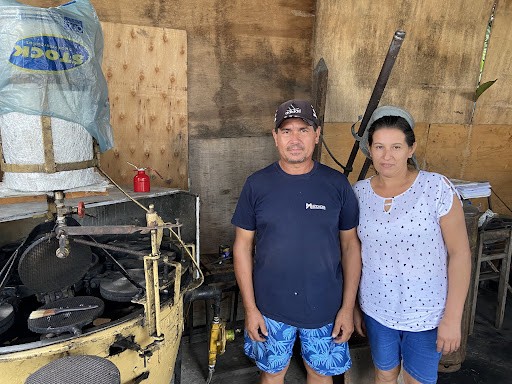
With little money and securities, Ilda and Carlos had to be wise with their resources. They used their old truck to drive themselves into the city, and started a business selling general goods which ranged from clothing and plastic buckets to consumables, like soap and snacks. Soon, the hard reality of starting a new business set in, as competition was fierce and they weren’t able to get any traction.
Knowing their livelihoods were at stake, Ilda and Carlos brainstormed what else they could do to support their family. They landed on the idea of selling charcoal because it is commonly used by people to cook and heat up their homes. Though the couple started to buy charcoal from the countryside and resell it in the city for a profit, challenges continued to appear. Their truck began to have frequent breakdowns, forcing them to pay for repairs and lose money with the business.
In the meantime, Ilda heard from one of her friends about Diaconia, where she could access micro-loans. At first, she was a bit skeptical about the organization, but the reality that she would be accessing the loans with other people gave her more confidence. She decided to apply and join a trust group, which allowed her to keep her charcoal business alive and give her family stable income.
After a few loan cycles, Ilda had not only repaid her loans, but her business had expanded to the point where she was able to purchase an additional truck to transfer more products from the countryside to the city. As the business gained momentum, Carlos was able to make agreements to sell their products to 10 gas stations and some smaller independent stores, further stabilizing the revenue of their business.
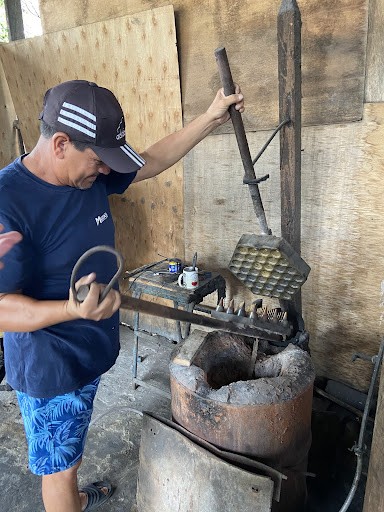
Raising kids while making sure there was enough money for food and school was a difficult task for Ilda and Carlos. Yet they persevered in order to provide a better life for their children. “What other options do we have? I only have grade 5 education,” Ilda said. “And I want to make sure my children have enough opportunities for the future.”
Their oldest daughter, who turns 15 this year, dreams of becoming either a journalist or a lawyer, while their oldest son, who is 16, has already started training to become an electrical mechanic for cars. “And now, the entire family helps out! Our kids would also help and I would give them some allowance for their work,” Ilda said.
As the business grew, Ilda and Carlos hired two more people to sort and repackage the charcoal, and added more space and equipment to make working more efficient. Ilda also noted that the demand for charcoal dips in the summer months, so they put some of their money toward starting an ice cream cone business! This decision allows them to have consistent income throughout the year.
Ilda loves being a part of the savings group called “Progresso de Jesus-2” (Progressing with Jesus-2). “It’s not just about the money, but people in the group respect each other and look out for one another.” When asked about her faith she said “being Catholic myself, the devotionals by the chaplains really helps me to understand Jesus and how I should love one another.”
By partnering with Diaconia, women like Ilda and Gilda are given the opportunity to watch the seeds of their business grow into something stable and strong. Currently, there are 5,893 Diaconia clients, and we are excited to continue sharing their stories of hope.
Experiencing renewed joy through water –
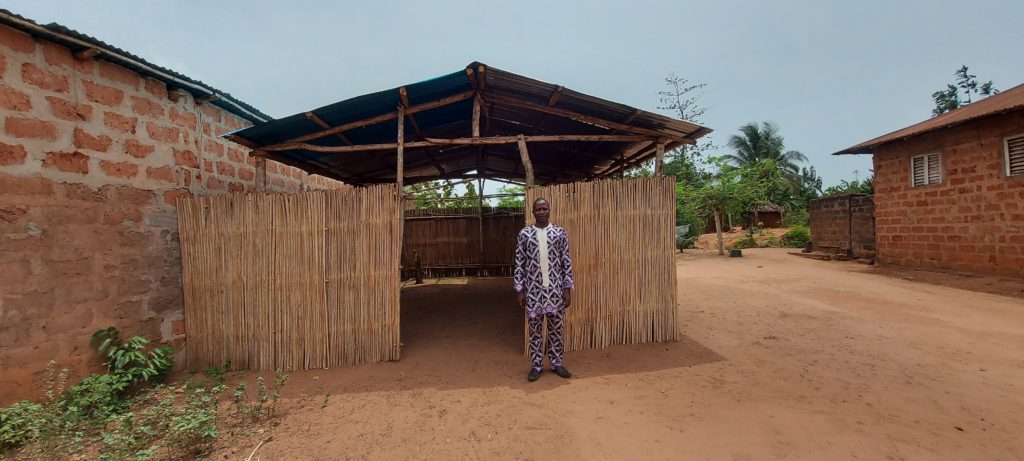
For over fifteen years, Global Aid Network (GAiN) has committed to providing deep-capped water wells to rural villages in such countries as Benin, Tanzania and Togo. Through the Water for Life Initiative, which includes the WASH (Water, Sanitation and Hygiene) program, GAiN not only resolves to give communities access to clean water, but also develop a culture of sustainability and wellness and an understanding of the love of Jesus.
Our team encountered Pastor Fidele and a few others in the village of Adjaho Vekpa. When we asked him about the community’s local water source, he informed us that the closest reliable source of water was six kilometers away. Although there were hand dug wells nearby, they did not always produce the amount of water needed by the village. Thus, women and children in the community had to travel six km to bring home water that was collected from swamps and standing water. The water was contaminated, as it was shared with livestock and was also used for bathing and doing laundry. Water-borne illnesses would often plague people as a result of being forced to drink this polluted water.
Previously, there was strong resistance to preaching and the gospel because the community was steeped in the practices of Voodoo. Yet, even before our team arrived, God was working in the hearts and minds of the villagers. Once the well was provided, people’s hearts slowly became open to hearing the message of Jesus Christ.
However, once a well was installed, an abundance of joy was brought to the community. The availability of clean water provided them with a means of living healthier lives that were no longer burdened by lengthy travel or disease. Partnering with the local church also allowed the hope of Jesus to be shared.
The pastor related to us the feelings of many villagers: “The God that provides the water is the God we want to know about.”
Our team worked with the Assemblies of God Church in Toffo to train six members of that church on how to share their faith, and they went door-to-door in the community, proclaiming the good news of Christ. Fourteen people made a decision to follow Jesus in one day, and a new church plant of 15 people now exists in this village, led by Pastor Fidele.
“Our prayer is that this village is gained for Christ,” shared Pastor Fidele. “The work that GAiN has done in this village has already opened doors for us to come here with the Good News of Christ and that has opened the door for us to preach to people and they accept Christ.”
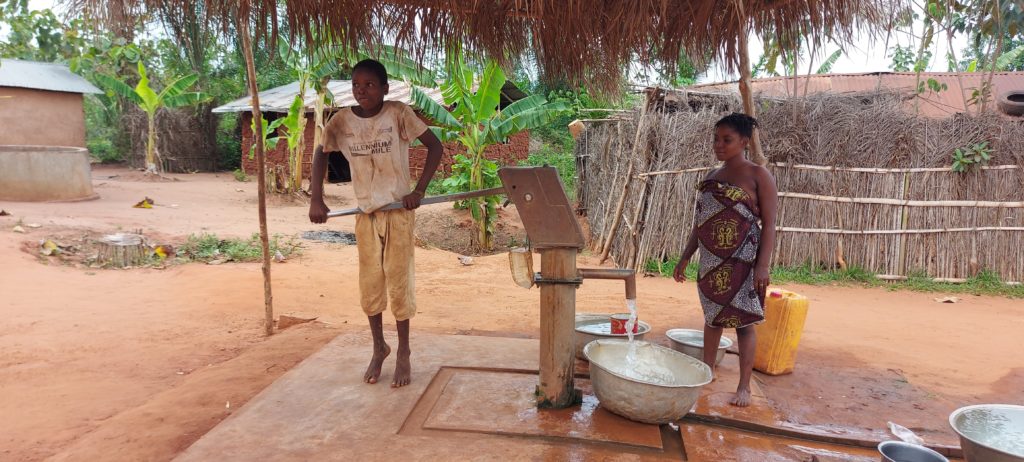
This is just one story of how deeply grateful we are for how God continues to use GAiN’s WFLI to transform the everyday rhythm of villages.
We also witnessed the faithfulness of the Lord through the commissioning of a second rotary rig in Benin, which is already assisting in providing even more wells to villages in the country.
Additionally, we saw God’s continued faithfulness during the Director of GAiN’s WFLI, Steve Thompson’s, trip to Tanzania this summer. Steve met with the Tanzanian government, who are key partners in the provision of water to rural communities, and together with GAiN, they started negotiations for the next MOU (Memorandum of Understanding).
During that same trip, Steve visited the three villages that are part of the Maasailand project. One village leader shared how his community had lost hope in finding clean water, as thousands of dollars had been spent searching for water in partnership with other organizations, and all attempts had failed. When the villager heard that GAiN Tanzania had found water, he dropped to his knees and cried, shaking Steve’s hand and praising God for the water that had been found. We are moved by the Lord’s work in Tanzania, especially how he has strengthened the staff working there, enabled us to form a solid relationship with the government, and provided the tangible gift of water to rural villages.
AFA (Assa Fulfulde Anji) Project
In March 2021, GAiN partnered with a foundation to bring the gospel to three unreached people groups, including the Fulfulde and Anji peoples in Northern Benin, and the Assa people in Northern Tanzania. The goal is to plant 85 churches among these three people groups, and see 4,600 unreached individuals come to know Jesus Christ as their Saviour.
Over the past four months, we have witnessed the transformative power and work of God through the AFA Project. During our team’s trip to visit ten villages in Northern Benin that belong to the Fulfulde people, we saw how the provision of clean water and church plants had changed the atmosphere and livelihood of the community.
The Fulfulde people are cattle rearers, and were a historically nomadic group. They have been hated by other people groups in the past because their animals would eat other people’s crops. As a result, the Fulfulde people became extremely isolated and were known for being distrustful of others. However, our team was told that because of both the deep-capped water well and church plants, the Fulfulde are much more welcoming to outsiders. We observed this change through the warm welcome we received from the villages, and how in one community, the children came to play with us and touch our skin. Previously, this kind of interaction would never have happened.
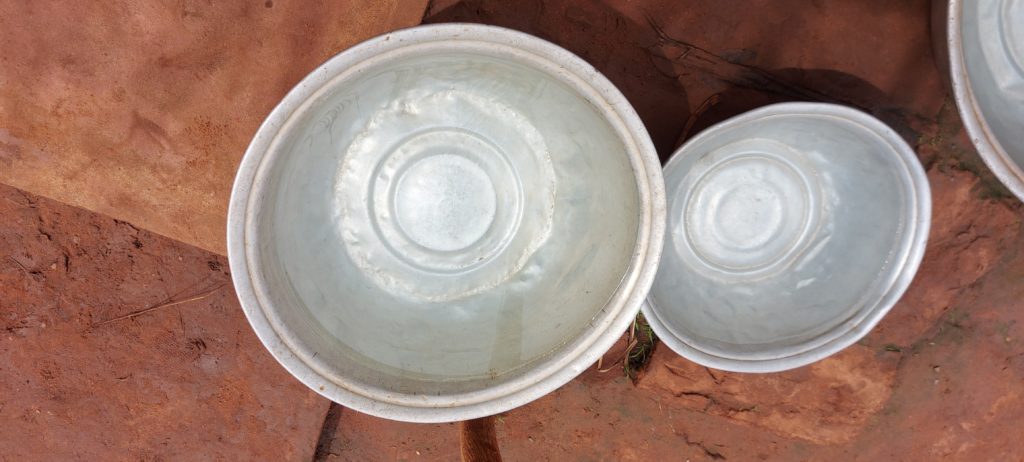
During a conversation with Bertin, the JESUS Film director of Northern Benin, he noted that one of the reasons that the AFA project is so successful is because it targets specific people groups.
“These groups feel valued and chosen by GAiN. Therefore, they embrace the project enthusiastically,” he said.
In addition to providing communities with a well and hygiene and sanitation training, GAiN meets with local pastors to strategize about planting churches, teach discipleship skills, show the JESUS film and mobilize door-to-door evangelism. Several new tools have also been introduced, such as showing the Walking with Jesus (WWJ) Film series to new believers.
A member of our team had the chance to speak with several pastors who have used WWJ, and all agreed that it is very well received and incredibly useful for discipleship. Bertin noted that he “sees lifestyle changes in people and families after watching the WWJ film.” The film is shown with African actors and context as well as in the people’s own language, making it extremely effective in teaching new Christians more about Jesus.
The Discipleship Training Sessions are another tool that is being used as part of the AFA project. Bertin noted that this is like a small school for pastors, and is well received by those that attend. The pastors return to their churches feeling better equipped and ready to bring their new knowledge to their church.
One pastor named Daniel Gmanou said: “I thank God for this wonderful training. Each of the topics covered are important to me and also important to the faithful of the church. I have good memories of this because spiritual growth requires good training.”
Through this project, 34 churches have been planted in unreached people groups in Benin and Tanzania, and 26,000 people have heard the gospel. GAiN is thankful for all that God is doing through WFLI and AFA, and has faith that many more unreached communities will experience the life of hope and abundance that He offers.
Navigating through the BC Floods
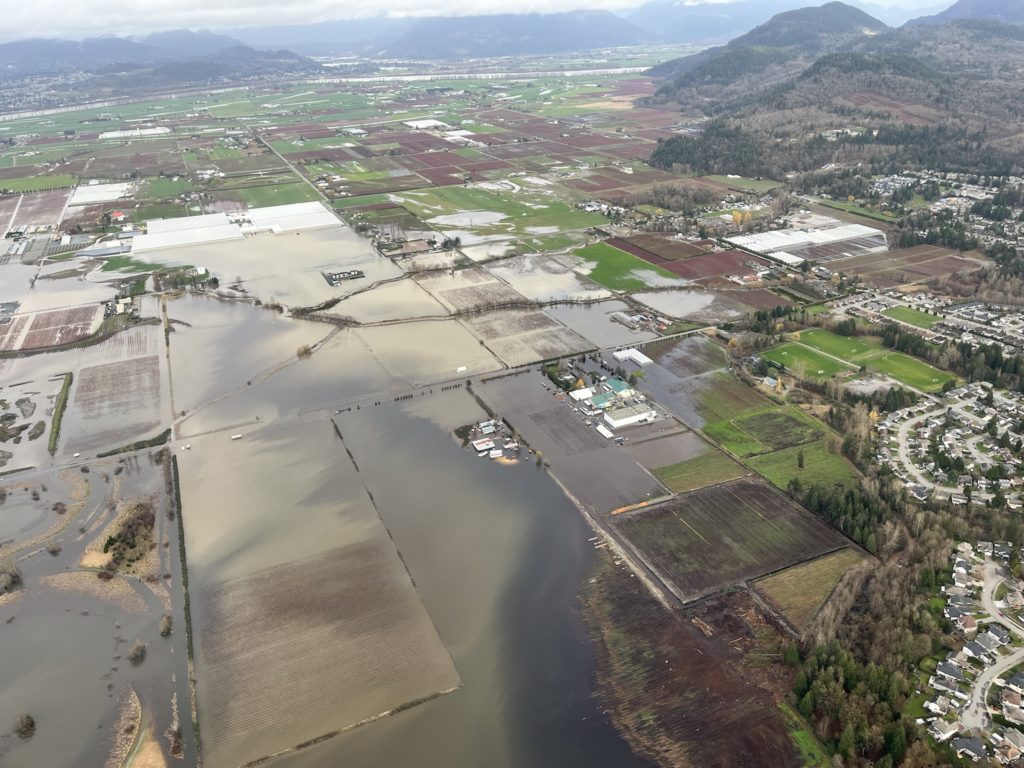
When Dale and Kim took over running a country market in Abbotsford, B.C., they never thought their biggest challenge would be trying to protect their business from raging flood waters.
In November 2021, the B.C. government declared a state of emergency following historic widespread flooding across the province. The impact was devastating, resulting in almost 15,000 people displaced and $450 million in insured damage. Sadly, four people lost their lives and thousands of livestock died.
Dale and Kim found themselves affected by this nightmare and were desperate for help.
“We watched the water approaching,” Kim recalled, adding that the couple had the luxury of seven hours to move as much stock and equipment as possible out of harm’s way. “We shouldn’t have stayed as long as we did. The place was an island (when we finally got out).”
In the end, several of their fridges were flooded, the walls and floor were waterlogged, and the couple’s meat and poultry supplies were ruined.
Thanks to the generosity and urgency of our supporters, Global Aid Network (GAiN) was able to partner with Samaritan’s Purse to send help to those who were affected. This included supporting the evacuee shelter in Abbotsford and equipping volunteers to clean out 200 flooded homes and businesses with special anti-mold spray.
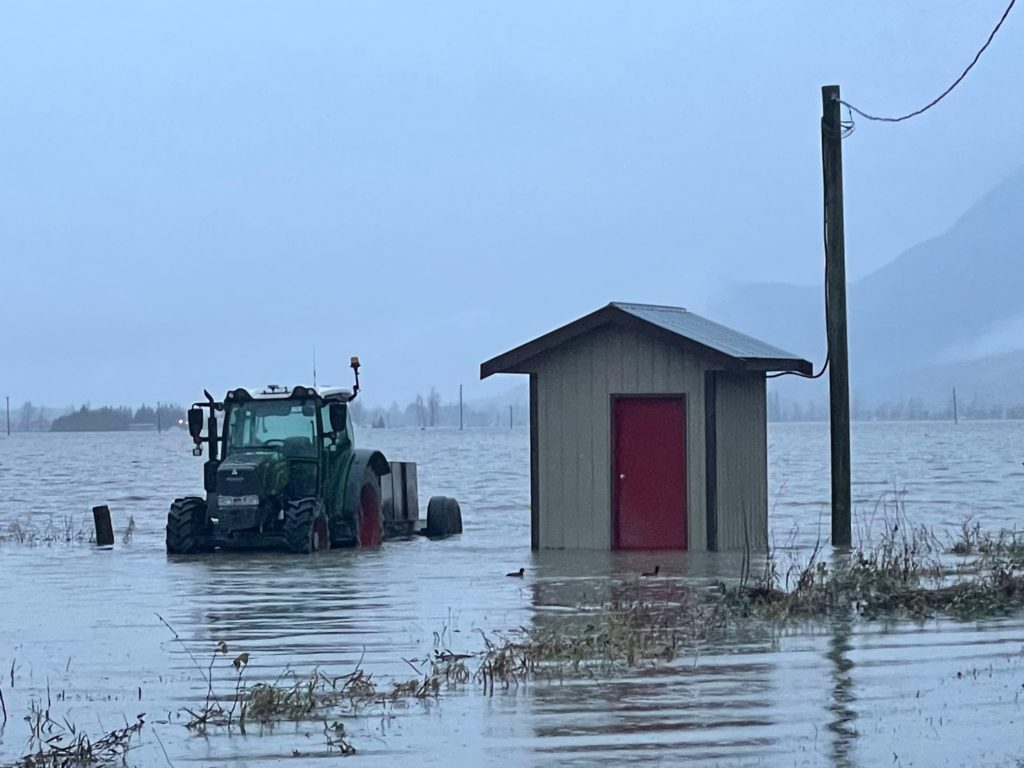
Kim and Dale were two of the hundreds of people who received help. Tractor trailers were equipped to help Kim and Dale, along with many others in Abbotsford and Merritt.
Volunteers that were outfitted in Tyvek safety suits also worked to prepare Dale and Kim’s business for repair by removing waterlogged contents and applying the special spray to prevent mold.
The couple expressed their profound appreciation. “The crew has been so amazing,” Dale said. “They’re leaders without being controlling. It’s such a beautiful thing to watch.”
Kim added: “The volunteers are so amazing, so focused. And when they prayed for us, I just lost it. Thank you so much for giving. I don’t know how we would have gotten through this without [help].”
While this work was being done, God opened doors for Samaritan’s Purse and chaplains from the Billy Graham Evangelistic Association to share the love and hope of Jesus. When each job ended, volunteers gave a special gift of a Bible to homeowners.
Since some of our supporters and staff were affected by the flooding, we were grateful to be in a position to help reveal hope and restore life locally. We are also thankful for those who were able to partner with us to give generously, volunteer their time, and pray faithfully for everyone who was impacted by the situation.
Story by Pau A. (March 11, 2022)
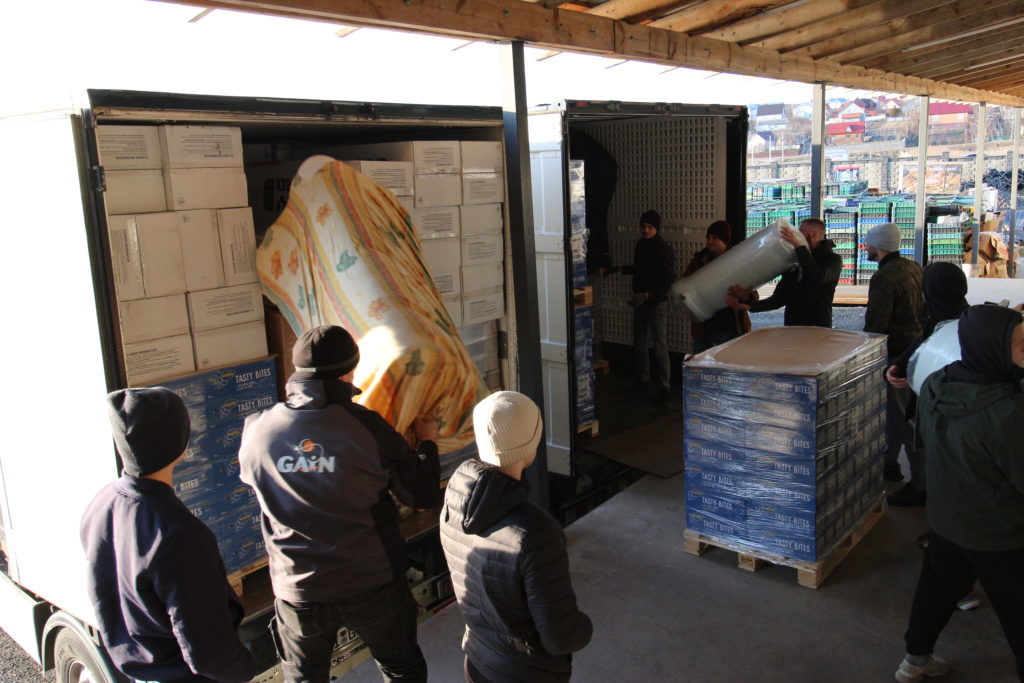
We arrived later than expected, but we are finally here. The entry to the warehouse is a tricky one, but our experienced GAiN drivers could manage it even with their eyes closed. In front of us, there is a group of about 20 to 30 people, most of them young men, volunteers from our local partner within Ukraine. Tomorrow, a fleet of cars and vans will come here from different parts of the country to bring GAiN’s aid to the hardest-hit areas of war.
These are the real heroes of war. People arriving from war-torn cities and towns under the eye of fire and shellings, just to go back and deliver basic supplies to their neighbours. We cannot feel any other way than privileged to be a small part of what they are doing by helping and enabling them to alleviate so much suffering taking place right now and here.
“Right after the war began, four or five days later, these were the first guys who took the minibuses, the food from their salaries, simple food, all they could, and they were the first ones, they did not wait for anybody,” says Sasha, our local partners’ main contact. He is surrounded by other two Sashas (formally Alexander). All three of them are the main people responsible for coordinating the efforts being done to deliver aid to the different regions and to accommodate families moving to the border.
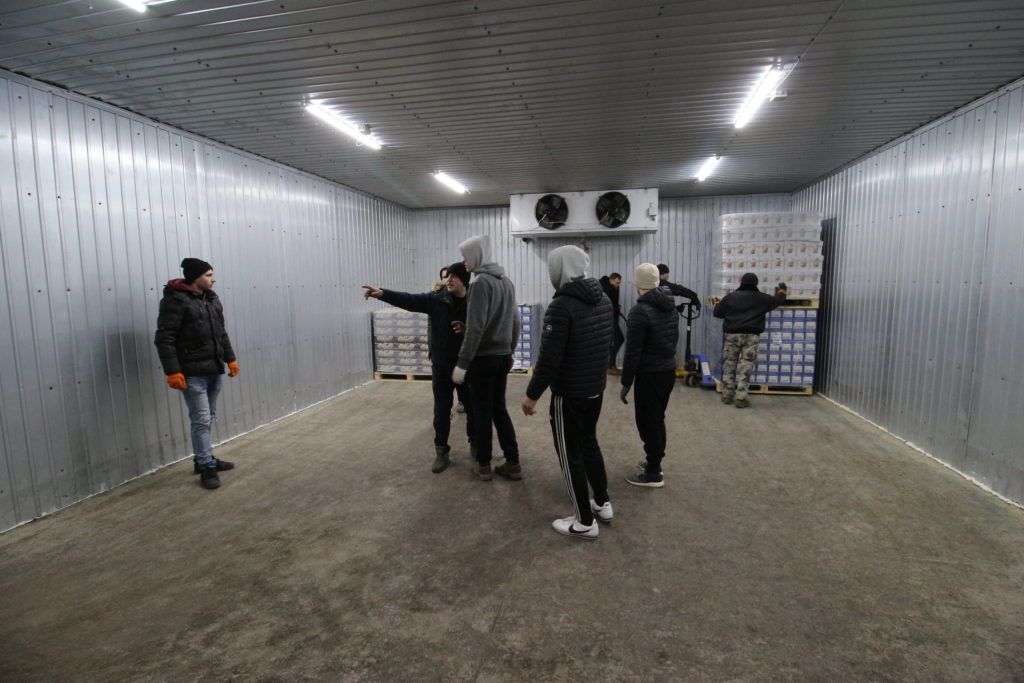
Sasha comes from Vishgorod, north of Kyiv. Today, his church and many other villagers from Vishgorod were able to evacuate. “Kyiv is still working good because there is still an open side where they can bring in the food,” he explains. “Those cities that are surrounded are in a more difficult situation.”
Sasha is happy that we could enter the country and meet them personally: “Western Ukraine became the hub for receiving the aid and send it. Here it is safe, this road is safe. I wouldn’t send you anywhere further, but here is safe.”
Sasha is driving more around the country, but who is really taking care of the warehouse we are now is the other Sasha by his side. “In the evening this is full,” he says. “But tomorrow there will be nothing here. Many buses, light trucks and even bigger ones, we are loading them here and sending them to Kyiv, Kharkiv, Poltava…”
Their network of churches is present in the 24 provinces in Ukraine. “As soon as we get something,” he continues, “we arrange the transportation and take it to the person who is responsible for the area.” The first Sasha takes over this point of the conversation: “Here in the phone there is a group with 25 church leaders and tonight,” he points to the second Sasha, “This man will see the specifications and will say to the 24 leaders: guys, we have this and that… So, already tonight or in the morning these guys will know what you have brought here.”
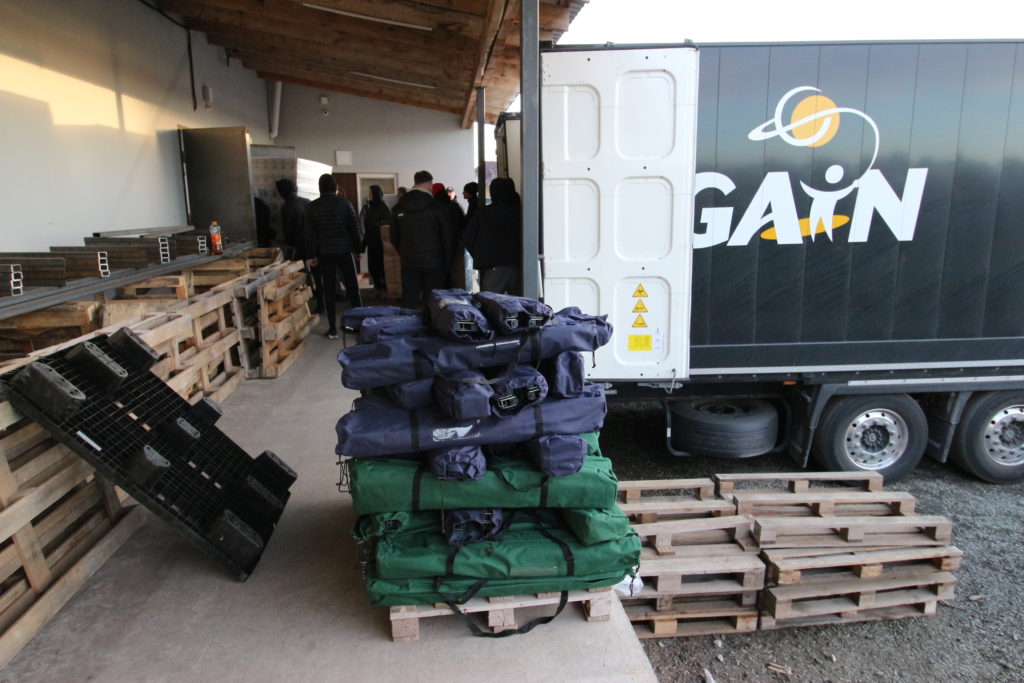
He keeps on going: “A lot of people now they evacuated from their homes, they have no basic things… So, I want to say thank you for giving the people the very basic, supporting them at the neediest moments in their lives.”
Finally, we ask the other Sasha, as the main leader of the network of churches that we partner with, how the Ukrainian Church is enduring this time of suffering. Sasha’s response cannot be any more hopeful: “I made a statement today that the war removes religion and brings faith. This region was one of the biggest church-wise, and some of us were concerned that we were living a lot of times locked in our own worlds, but now our walls have fallen. Our young people are just going around serving people, and that’s incredible.”
Story by Pau A.
It’s six in the morning. We spent the night in a convent in Przemyśl (Poland), fourteen kilometers from the border. We headed to the giant Tesco supermarket which, thanks to the recent closure of all its branches in Poland, now serve as reception halls for refugees across the country. We have two trucks parked there, one of them with a double trailer, loaded with gasoline for more than 1,000 kilometers and full of pallets with new mattresses, food and hygiene products.
Once at the border, it seems that we coincide with the changing of the guard. Have to wait. They ask us for papers. Have to wait. They ask us for passports. Have to wait. They ask us for papers again. Have to wait. And the scene is repeated at Ukrainian customs. In total, we have lost five hours and one of the colleagues who left her passport at home.
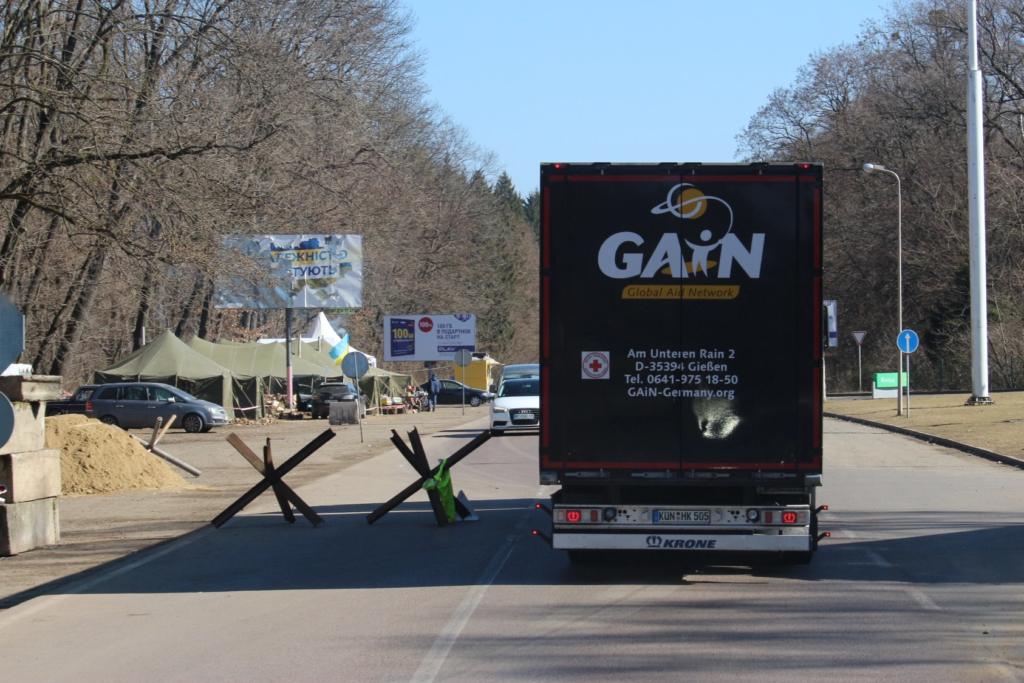
Last night was the first in which Russia attacked Western positions. Specifically, at the Lutsk and Ivano-Frankivsk airfields. At the border itself, while we wait for our passports, we join a group of carriers. I talked to two of them. They are from Ivano-Frankivsk and are going to stay. They carry water. Eyes stopped, frozen, as if moving the iris inside, searching through thoughts for answers to a war they don’t understand.
We are in Ukraine. After passing the queue of buses and refugees entering on foot, the streets become empty and inhospitable. Later we will find more traffic, more life, but here in the villages of Shehyni and Volytsya there seems to be no one left. Also, the road is terribly potholed. Although that is not the reason for the bumps, it is the feeling of entering a country at war from minute one.
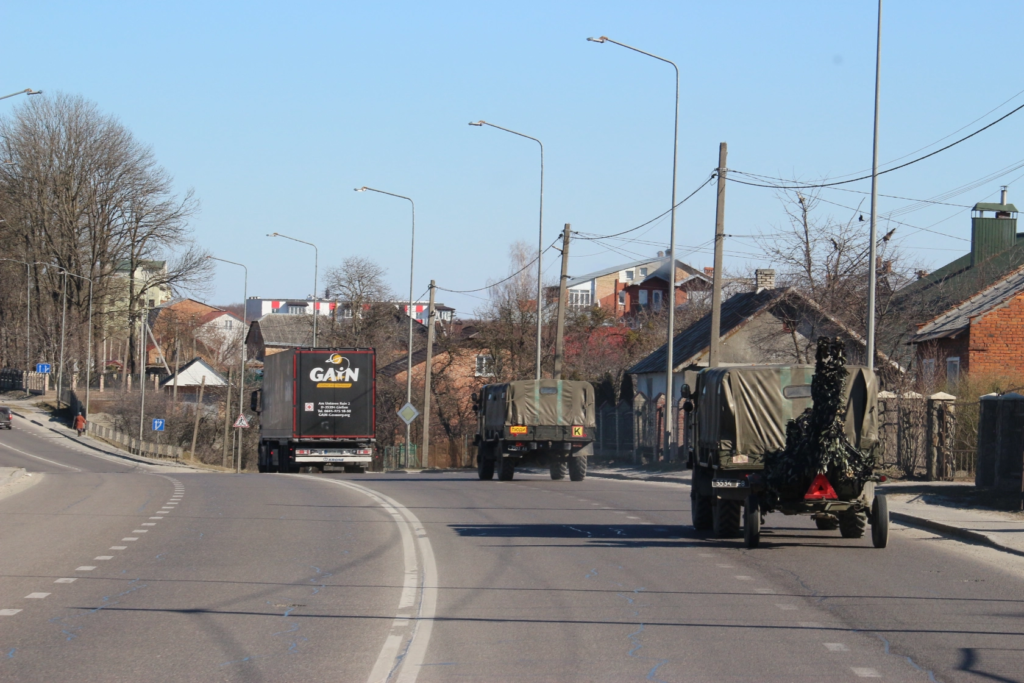
A few kilometers after Lviv we see a serious traffic accident that must have happened just a few seconds ago. If I had been in the truck in front I would not have missed it. It is not the only crashed car that we will see. It will be the nerves, or the rush, or the crossfire to which their minds are subjecting themselves.
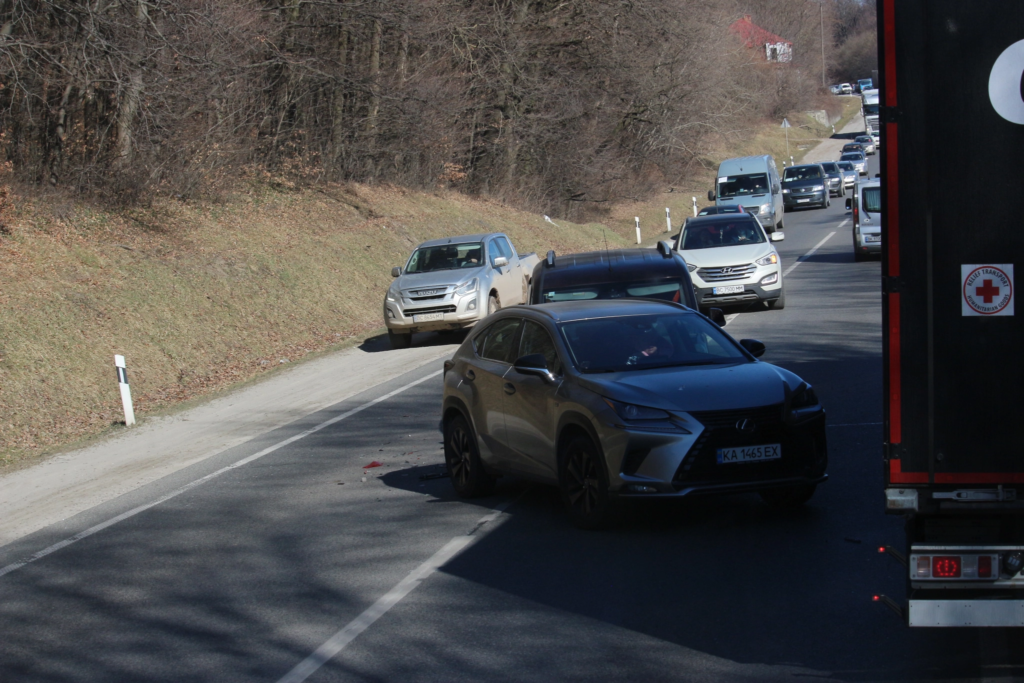
The checkpoints are not as many as I expected and in all of them they let us pass without asking when we see the humanitarian aid icon on our windshield, although by mistake it says “Ralief” instead of “Relief”, which, in reality, gives it a touch more local and folksy. To the right and left, all road exits are barricaded. Although the number of cars heading to Poland is clearly higher, there are also vehicles heading to kyiv. Perhaps the so-called twenty-four-hour ceasefire declared by Russia from eight in the morning has an influence.
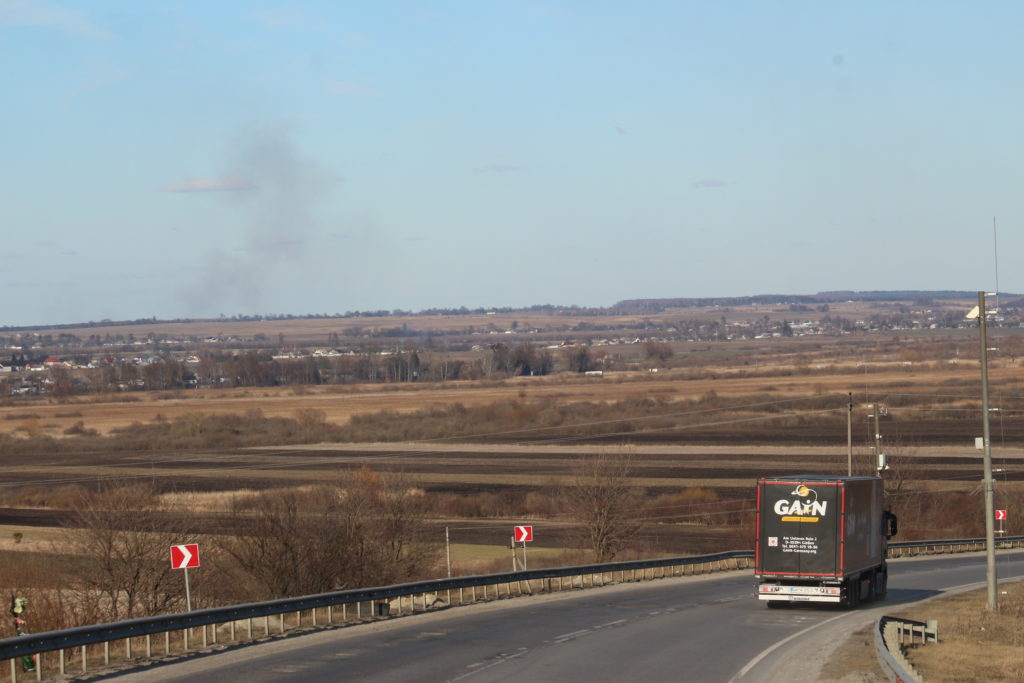
It’s after five in the afternoon. After more than five hours of driving, we reach our destination in Rivne: a warehouse that has been rented by a network of Protestant churches to bring aid to the places most affected by the war and still accessible. There, three dozen young people are waiting for us to unload the aid. Among the young people I find oddities like Andrei, 37, a Ukrainian emigrant who has come with his wife and small children from the US to help his compatriots. “I prayed to God and inside I felt that I wanted to help, I didn’t want to stay in the United States watching what was happening,” he tells me.
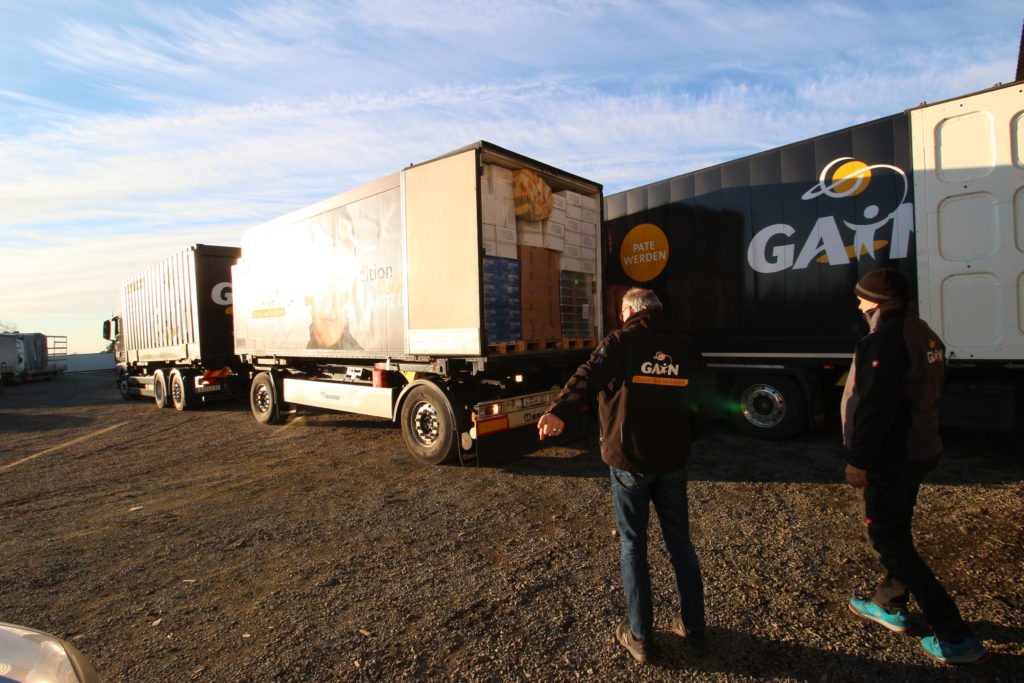
Then they take us to the church that has been converted into a makeshift shelter for individuals and families passing through Poland. As we eat dinner, one of the officers looks at me with wide eyes and utters the words, “It’s like living in a nightmare.” After dinner, while the rest do paperwork and paperwork, I meet Artem, a 19-year-old who has arrived with his grandparents. He lived with them in kyiv because he was starting his studies at the kyiv Polytechnic Institute. His parents and little sister live in Kherson and right now it is impossible for them to flee.
We are late. It’s after seven and curfew starts at ten. We shot out. At every turn I think the trailer will roll over and drag us down. We crossed more checkpoints. In one of them they catch me taking a photo. They make me go down. I erase the photos in front of them and they happily send me off. Viktor, the driver, already grumpy, gets angry. Then he won’t stop calling me “Paparazzi”.
At one of the last checkpoints, a soldier notices the Ukrainian colors and the “Ralief Support” on our windshield. He bids us farewell with his hand on his heart and bows in sincere gratitude.
We finally reached the border. It’s eleven at night. Cars, vans and buses pile up. Volunteers from World Central Kitchen go from vehicle to vehicle announcing that we can come by to pick up food while we wait. I accept the offer, but before I find the place, a colleague from the truck in front brings me bread and sausages. A few moments ago we had joked on the radio about ordering some pizzas at the border, anticipating that we were going to take a long time to leave. We are not wrong. We will end up watching the sunrise from the border.
After three in the morning, I approach the services between the Polish and Ukrainian customs. A group of refugees has gotten off one of the buses. I see mostly women and children. The last of all, a few steps away from his mother, a boy about eight years old is crying.
I immediately see in his expression that this boy is not crying because he complained or because his sister stole his toy or tablet. Nor does he cry because his mother has punished him. At that moment I discovered that there are tears and tears. This child cries in fear. Cries of frustration. He cries helplessly for not knowing or understanding what is happening. He cries of pure rage because he has had to live what no child should live.
Story by Pau A.
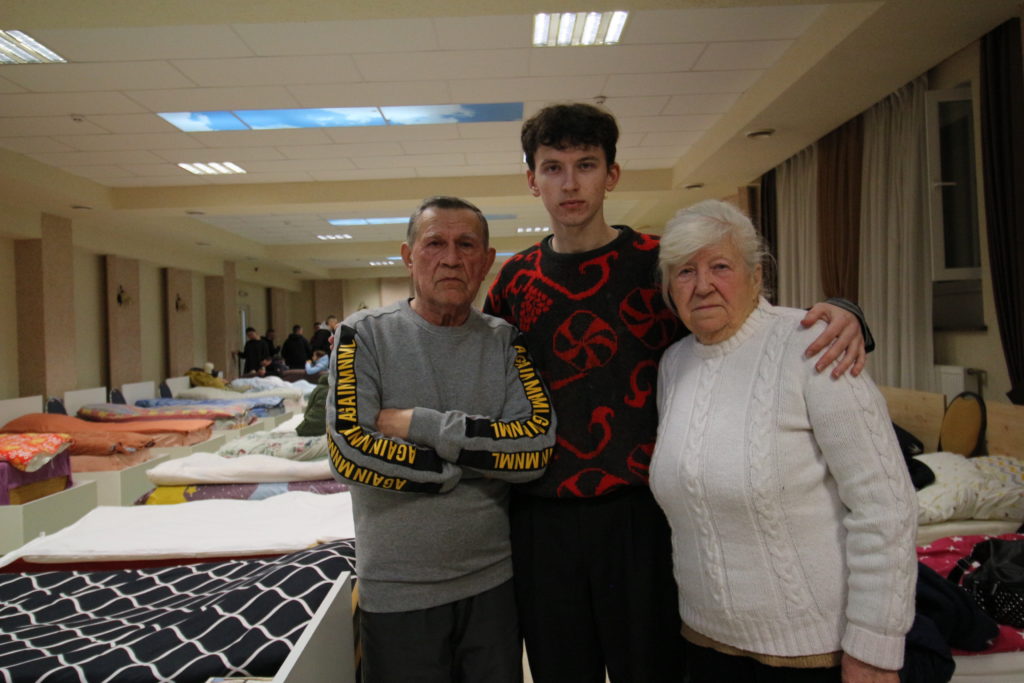
We arrive at the church in Rivne. The sun is going down, but just a little over thirty beds within the big worship hall are already occupied.
One of the pastors tells us the place will be full by midnight. People are still on the run. They usually arrive by 7pm or 8pm, and surely before the 10pm curfew. The next morning, all will be empty again, families will get back on track towards the border, and the church will get ready to host the next group.
Among the few guests who arrived earlier than usual is Artem and his grandparents. He is 19 years old. They were living in Hostomel, one of the towns in Kyiv’s outskirts that is being fought day after day by the Russian army, coveted especially because of its aerodrome.
“We left Hostomel two days ago,” Artem recounts. “Our country evacuated us because in Hostomel there is a lot of bombing and fire, so they evacuated us to Kyiv, and from Kyiv we came here with a bus.”
Artem was living with his grandparents because he was studying for a degree at Kyiv Polytechnic Institute. “Now our study is stopped, we pray that we can continue to study.” Fortunately, he still managed to escape with his grandparents, but unfortunately not his parents and sister. They are living in Kherson. “This is where the war is hitting very bad,” he explains. “We want to evacuate them too.”
That will not be easy as Kherson is one of the cities hardest hit by the war from day one. “We speak with them by phone, messages, Viber, [and] Telegram. They cry because of us, because of our situation, but they feel better for us now [since we could be evacuated]. We pray that they will be good.”
The look in his eyes, as with most of the Ukrainians we met so far, spoke on his behalf before he even pronounced any words. “It’s hard to understand,” he paused. “My friends, my family… We are under big stress. We don’t feel good, but we stay positive.”
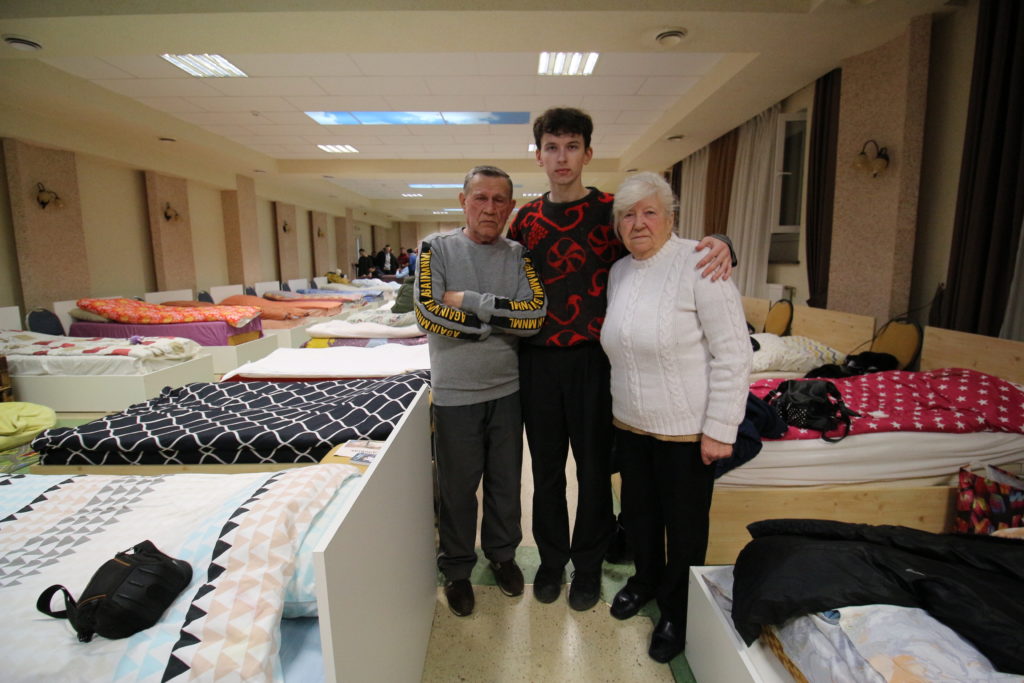
Tomorrow will be another long day for Artem. They plan to arrive in another city closer to the border, and from there maybe to Poland. But for now, probably the most urgent need for him is to stop thinking about tomorrow, at least for a little while. “We just need to sleep now, eat some food, have some fun because we have a lot of stress.”
As soon as Artem’s grandfather finds out we are here to help them, he leans in slightly – an honest sign of gratitude. I tell them this is the least we could do. After I pray for them, we wave goodbye and I wish them all the best, especially thinking of Artem’s parents and sister. We still have a long drive back to Poland ahead of us, but they have a much longer drive back to hope, joy, goals, dreams, and peace of heart.
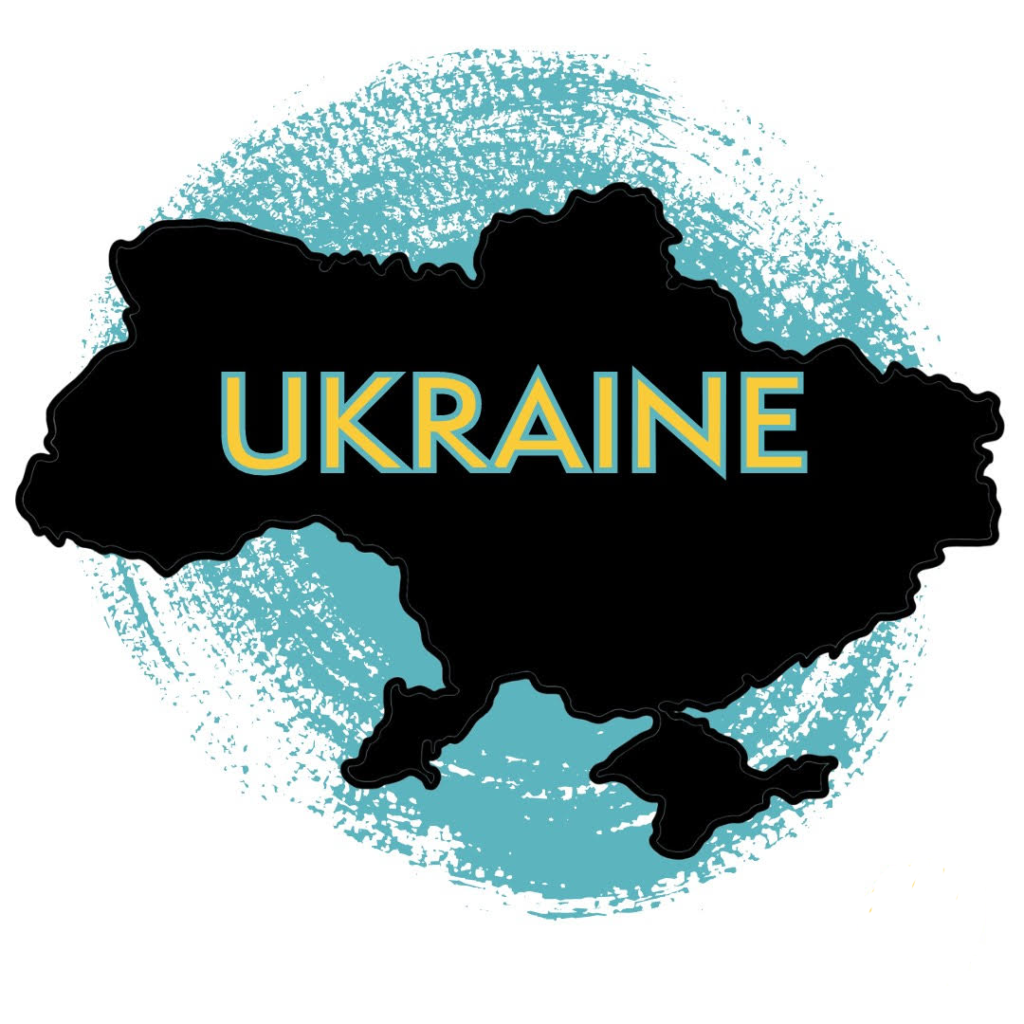
“The missile hit. Everything was on fire. I heard gunshots. It had hit my neighbours. Blood everywhere. You won’t find an answer. There is no answer. There is nothing left.” – Igor* described what he witnessed.
UN aid agencies estimate that millions of people could be displaced following the Russian invasion of Ukraine on February 24, 2022. 6.5 million people have been displaced within the country, and over 3.6 million people who have left the country urgently fleeing to neighbouring countries as they seek safety.
The terrifying sound of air raid sirens blaring throughout Kyiv, and images of locals taking shelter in underground places like subway stations, only show a glimpse of the horrific reality that many families and individuals are currently experiencing.
Many who have already left the country – mostly women and children – have been forced to separate from their husbands, fathers and brothers, as men aged 18-60 have been restricted from leaving the country for possible conscription.
“There are no winners in war, but countless lives will be torn apart.”– Filippo Grandi, head of UN refugee agency UNHCR.
There is great fear and uncertainty for the Ukrainian people. Those who have left everything behind to flee to other countries for safety are in dire need of essentials.
Will you join us as we work to provide emergency relief Ukrainians who are displaced?
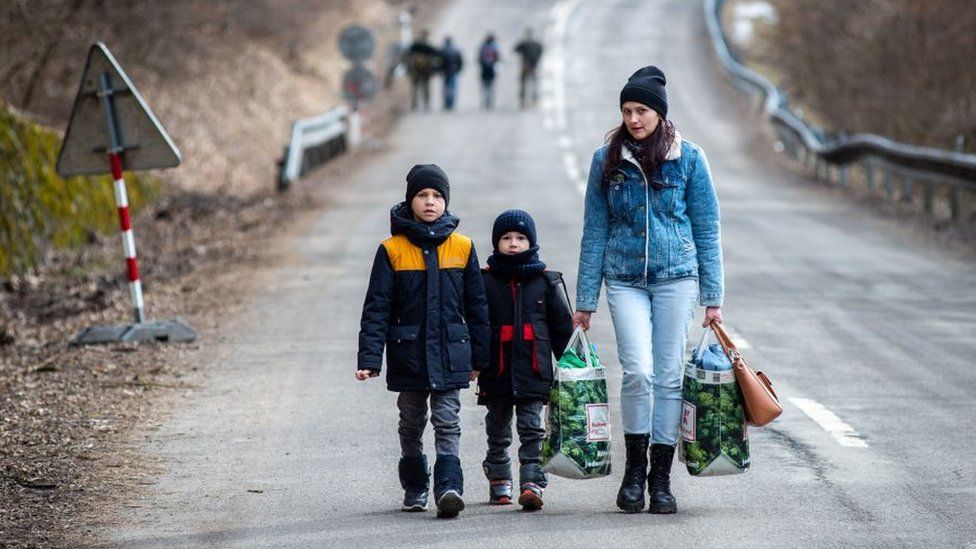
Global Aid Network (GAiN), through its offices in Germany and the Netherlands are packing and procuring essential items such as food, medicines, tents, sleeping bags and blankets to ship to their local frontline partners. These much-needed items will be provided to refugees arriving in Poland, Hungary, Romania and the Republic of Moldova.
Refugees are desperately in need of hope, peace, provision and protection. The need for aid is critical. As of April 1st, we have sent 82 shipments via truck. As the number of people affected continues to rapidly increase daily in this complex situation, we continue to help even more people during this critical time and are committed to supporting people in this time of desperation.

“The missile hit. Everything was on fire. I heard gunshots. It had hit my neighbours. Blood everywhere. You won’t find an answer. There is no answer. There is nothing left.” – Igor* described what he witnessed.
UN aid agencies estimate that millions of people could be displaced following the Russian invasion of Ukraine on February 24, 2022. 6.5 million people have been displaced within the country, and over 3.6 million people who have left the country urgently fleeing to neighbouring countries as they seek safety.
The terrifying sound of air raid sirens blaring throughout Kyiv, and images of locals taking shelter in underground places like subway stations, only show a glimpse of the horrific reality that many families and individuals are currently experiencing.
Many who have already left the country – mostly women and children – have been forced to separate from their husbands, fathers and brothers, as men aged 18-60 have been restricted from leaving the country for possible conscription.
“There are no winners in war, but countless lives will be torn apart.”– Filippo Grandi, head of UN refugee agency UNHCR.
There is great fear and uncertainty for the Ukrainian people. Those who have left everything behind to flee to other countries for safety are in dire need of essentials.
Will you join us as we work to provide emergency relief to those who are displaced?

Global Aid Network (GAiN), through its offices in Germany and the Netherlands are packing and procuring essential items such as food, medicines, tents, sleeping bags and blankets to ship to their local frontline partners. These much-needed items will be provided to refugees arriving in Poland, Hungary, Romania and the Republic of Moldova.
Refugees are desperately in need of hope, peace, provision and protection. The need for aid is critical. As of April 1st, we have sent 82 shipments via truck. As the number of people affected continues to rapidly increase daily in this complex situation, we continue to help even more people during this critical time and are committed to supporting people in this time of desperation.
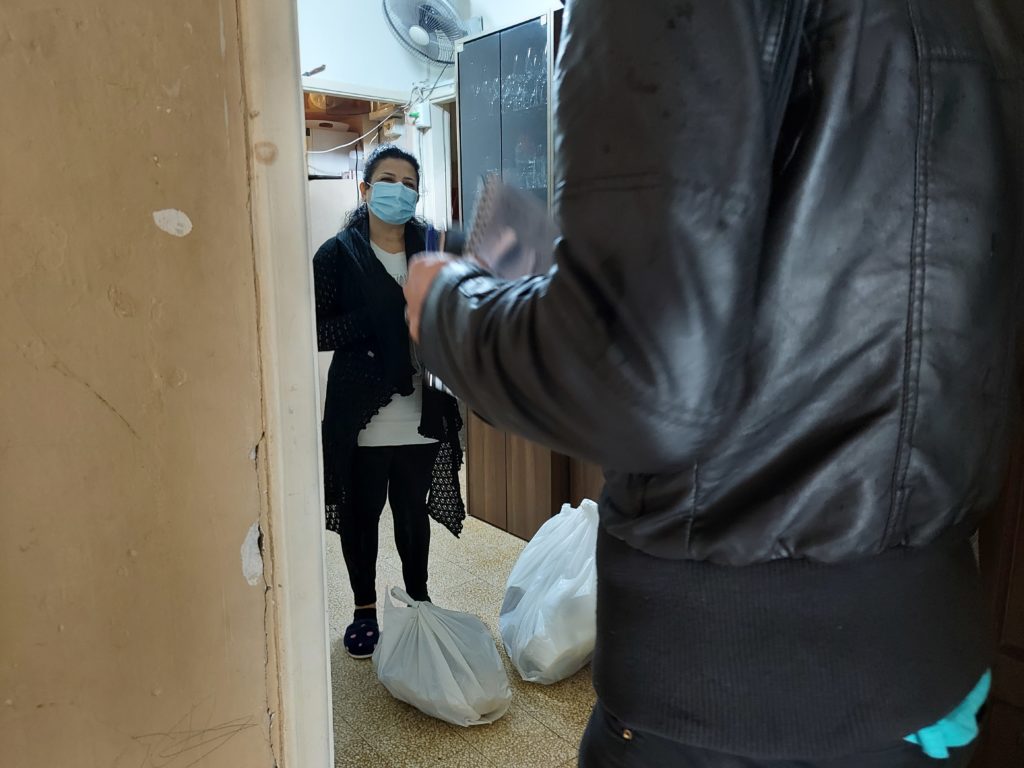
Out of the visits came meaningful interactions and conversations with hundreds of people. Hasnaa and her husband were one of those meaningful conversations. They shared their need with our partners, telling them how this pandemic has been hard on them as a family. The team prayed for them and shared the gospel message with them. Hasnaa and her husband expressed interest when they were invited by the team to go to church. “Hopefully, one day, after the lockdown is over, we will join.”
Our partners also had the opportunity to spend time with a lovely lady named Fadia, who lives with her son, daughter, and grandchildren. She shared that after the explosion her grandson started experiencing recurrent, unexpected panic attacks, requiring special medicines to help him cope. With the current state of the country’s economy, Fadia’s family was unable to afford to go to the doctor and buy the medicine from the pharmacy.
“You have no idea how much you’ve helped us by bringing us this food pack,” Fadia commented. “You’ve taken off some of our burden, really, thank you.”
Another meaningful conversation we had was with Salwa. It started off when the team received a frantic call from her, asking if they could urgently help her. She was so anxious while she waited, that she got very excited when she saw them heading toward her on the street., “You actually came! Other organizations would say they are coming but never show up, I’m just so happy you guys came to see my situation.”
Salwa explained that it had been months since she could afford to buy food. “You have no idea how much I needed this and how I appreciate this food you brought,” she said through tears.
While some of the team was talking to Salwa, another team member noticed a boy staring at him from inside, so he went to him. The boy was Salwa’s son. A team member sat with him and talked about basketball. The conversation moved to Jesus, how much Jesus loved him and that God has a great plan for him.
Salwa told the team that she was happy that they had a spiritual conversation with her and her son. She shared, “I want my son to grow up and be like you. [To grow up to] love God the way you all do and to help others.”
After prayerfully considering the situation in Lebanon and the people we are serving, our desire is to continue to provide until December 2021. We’ll continue to provide food packs for 400 families (an additional 100 families due to the worsening situation), medicine and medical treatment for those in need, along with minor house repairs, basic home needs like beds, mattresses, blankets, and appliances.
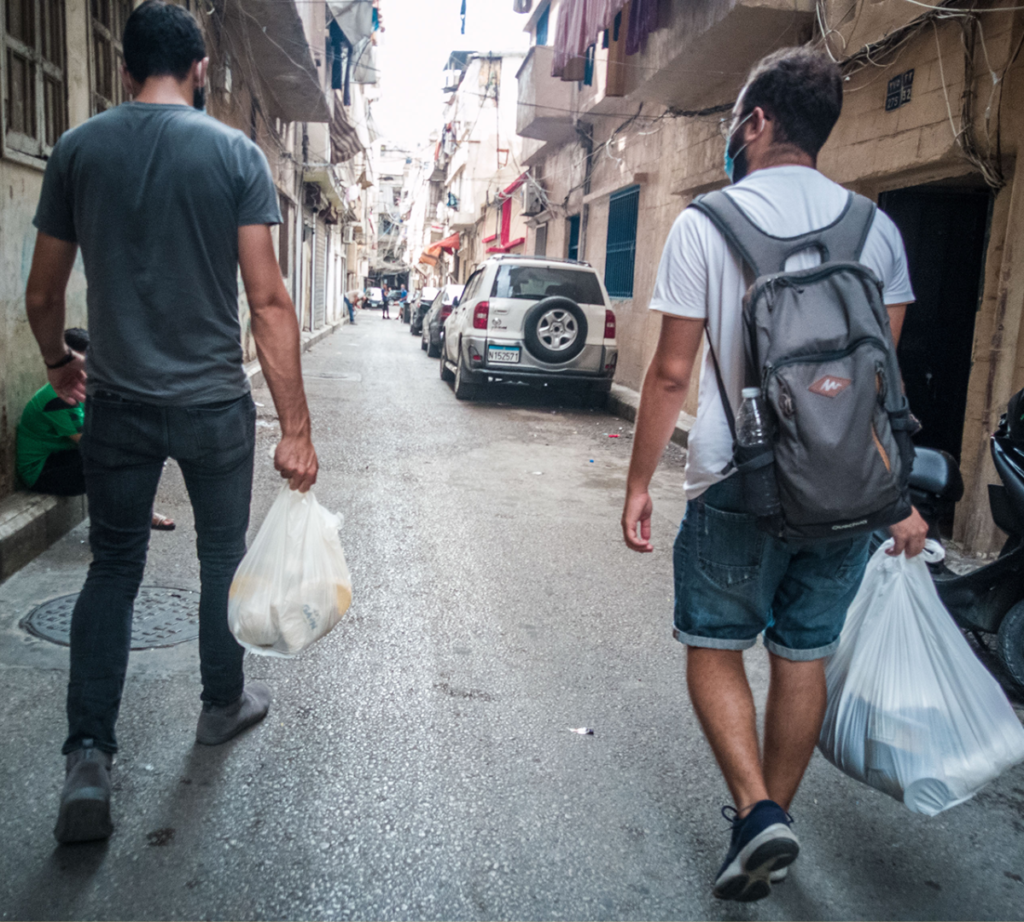
After the Beirut explosion on August 4th, our local partners in Lebanon formed a team to help coordinate cleanup and repairs efforts. Six staff, 11 interns and disciples, and several volunteers joined the effort to visit homes, churches, schools and hospitals to help with cleaning and clearing the glass and rubble caused by the explosion. The team was able to join in the efforts to clean 120 homes, two schools, four churches and one hospital.
They did a field survey of homes affected by the explosion and assessed ways they could help the affected families. The needs varied from urgent repairs to walls, doors, windows, glass replacement, replacement of appliances to personal needs like food, medicine, elderly and baby care products. Teams were divided into smaller groups that went back to these homes to bless families by helping provide some of their needs.
They met Anna through a referral by a family that we were helping. Anna is a single mother who raised three boys on her own after her husband left them. She used to work at a school selling snacks and cooking for elderly people around her neighborhood. After the Lebanese Revolution started in October and the COVID-19 lockdown happened in March, she lost her job at the school due to school closures.
As if that wasn’t enough, she also lost her job cooking for the elderly after their families requested she stop to prevent possible spread of the virus. Anna was left without a job and has since struggled to afford food for herself, leaving her going to bed most nights on an empty stomach.
Then the explosion happened and Anna was left devastated and lost hope completely. When our team showed up on her doorstep with food packages, she was overjoyed. She hadn’t received this kind of help or generosity from anyone.
After the team fixed things around her house, they shared about who they were and why they do what they do. “We told her our aim is to show God’s love and tell everyone about Him,” explained our partner. “She was very open since she was from a Christian background.”
They spent time praying for her and when it was done she cried, “Your prayer is so beautiful from the heart. I don’t deserve it. I’m so far away from God and I’m not a good person. I don’t talk to Him or anything. But sometimes I look up and speak to Him but I don’t feel He listens to me.”
“God is close to you and He loves you,” they reassured her. “He has been taking care of you. Whatever you say, He listens to you. Keep talking and praying to Him.”
Anna was so touched that she invited the team to come back another time. Once they left, she sent them a voice note saying, “I want to thank you all from the bottom of my heart. Thank you for thinking about us and helping us. I’m so happy that everything in the food pack was what I really needed.”
The team has done 450 connections so far with the number expected to reach our 500 families target in the coming week. By early September, have visited 320 homes of the 420, blessing the people and providing repairs, food packs, medicine and the message of hope in a loving God who truly loves and cares for them. Of those they visited and blessed, 13 people made the decision to commit their lives to Jesus.
